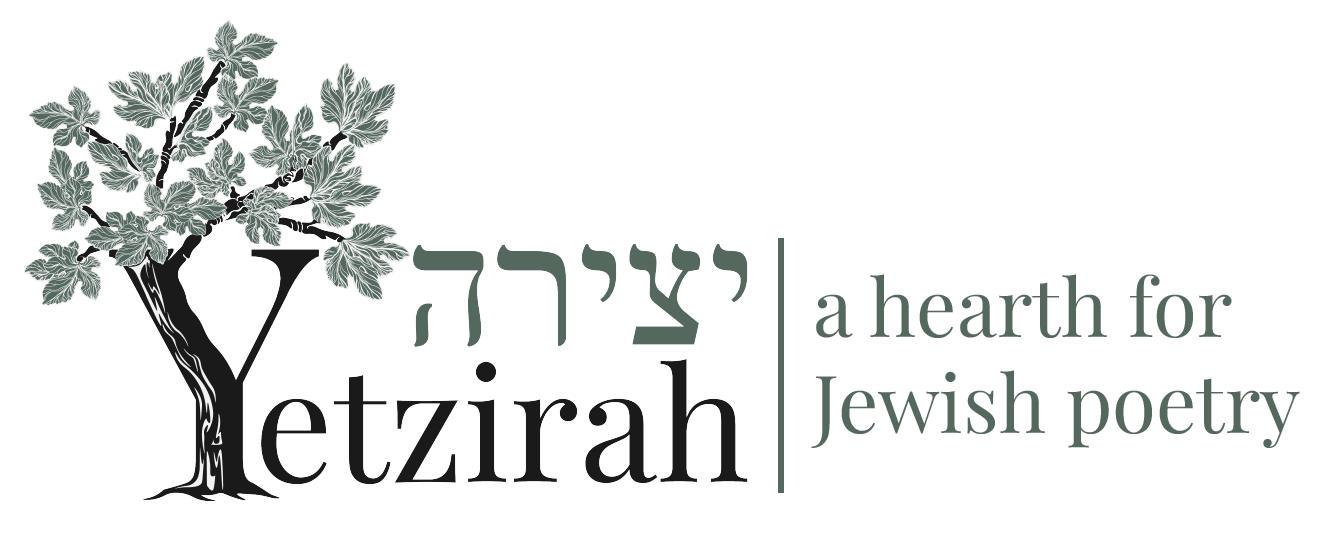Advisory Council
Comprised of a group of renowned poets, translators, scholars, theologians, and educators, the Yetzirah Advisory Council is grounded in supporting the transformative nature of Yetzirah: to serve as the only national literary organization whose mission is to foster and support a community for Jewish poets, serving writers and readers of Jewish poetry now and for generations to come.

Robert Alter is the author of more than 20 books of criticism, translation, and commentary. He earned his BA from Columbia University and PhD from Harvard University. Known for his translations of biblical texts, Alter has also written extensively on the European novel, contemporary American fiction, and modern Hebrew literature. His publications include The World of Biblical Literature (1992), Imagined Cities: Urban Experience and the Language of the Novel (2005), The Book of Psalms: A Translation with Commentary (2007), Pen of Iron: American Prose and the King James Bible (2010), The Art of Biblical Poetry (1985), and The Art of Biblical Narrative (1981), which won the National Jewish Book Award for Jewish Thought. Alter’s translations of biblical texts have won accolades for their precision, clarity, and literary force.
Alter’s many honors and awards include two fellowships from the Guggenheim Foundation, fellowships from the National Endowment for the Humanities and the Institute for Advanced Studies in Jerusalem, and the Old Dominion Fellowship from Princeton University. A member of the American Academy of Arts, the American Philosophical Society, and the Council of Scholars at the Library of Congress and a former president of the Association of Literary Scholars and Critics, Alter received a Los Angeles Times Robert Kirsch Award for lifetime contribution to American letters in 2009. He is Class of 1937 Professor Emeritus of Hebrew and Comparative Literature at the University of California Berkeley.

Rabbi Sharon Cohen Anisfeld is a distinguished leader in Jewish education and spiritual life. As Dean of Hebrew College’s Rabbinical School and later as President of the College, she struck a rare balance between guiding the institution and forming deep, personal connections with her students. Ordained by the Reconstructionist Rabbinical College in 1990, Rabbi Anisfeld served for many years as a Hillel rabbi at Tufts, Yale, and Harvard. While at Yale, she organized the University’s first women’s Seder in 1993—an annual event that led to her editing The Women’s Seder Sourcebook and The Women’s Passover Companion, both published in 2002.
In 1993, she joined the summer faculty of the Bronfman Youth Fellowship in Israel and later became Director of Alumni Initiatives. She also organized a groundbreaking national conference for Jewish women at Yale in 1997. Rabbi Anisfeld began teaching at Hebrew College in 2003 and was appointed Dean of Students in 2005. She served as Dean of the Rabbinical School from 2006 to 2017 before becoming President of Hebrew College in 2018—the first woman to hold that role. Recognized by Newsweek as one of America’s 50 most influential rabbis from 2011 to 2013, Rabbi Anisfeld is widely respected for encouraging her students to pursue authentic, diverse visions of the rabbinate. Her leadership reflects a deep commitment to bringing Torah to bear on questions of personal meaning, ethical responsibility, and social justice.

Ellen Bass’s most recent collection, Indigo, was published by Copper Canyon Press in 2020. Her other poetry books include Like a Beggar, The Human Line, and Mules of Love. Her poems appear frequently in The New Yorker, American Poetry Review, and many other journals. Among her awards are Fellowships from the Guggenheim Foundation, The NEA, and The California Arts Council, The Lambda Literary Award, and four Pushcart Prizes. She co-edited the first major anthology of women’s poetry, No More Masks!, and her nonfiction books include the groundbreaking The Courage to Heal: A Guide for Women Survivors of Child Sexual Abuse and Free Your Mind: The Book for Gay, Lesbian and Bisexual Youth. A Chancellor Emerita of the Academy of American Poets, Bass founded poetry workshops at Salinas Valley State Prison and the Santa Cruz, California jails, and teaches in the MFA writing program at Pacific University.

Dan Bellm, a poet and translator living in Berkeley, California, has published five books of poems, including Counting (Finishing Line Press, Georgetown, KY, 2023), Deep Well (Lavender Ink, New Orleans, 2017), and Practice: A Book of Midrash (Sixteen Rivers, San Francisco, 2008), winner of the 2009 California Book Award. Recent translations include Central American Book of the Dead, by Balam Rodrigo (Flower Song Press, McAllen, TX, 2023), Speaking in Song, by Pura López Colomé (Shearsman Books, Bristol, UK, 2017), and The Song of the Dead, by Pierre Reverdy (Black Square Editions, New York, 2016), winner of an Artist’s Fellowship in Translation from the National Endowment for the Arts. He has taught literary translation and poetry in the MFA in Creative Writing Program at Antioch University Los Angeles, and at Mills College, and he serves as an interpreter for asylum seekers with Centro Legal de la Raza, Oakland, California.
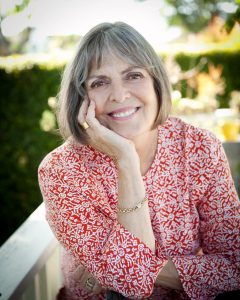
Laure-Anne Bosselaar was appointed Poet Laureate of Santa Barbara in 2019. She was born and raised in Belgium, where she worked for Belgian and Luxembourg Radio and Television. She studied Acting and Elocution at the Brussels Conservatory and earned an M.F.A. in Theater Arts from the Institut National des Arts des Spectacles (National Institute for the Performing Arts) in Brussels. She taught French poetry at the International School of Brussels.
Bosselaar earned an MFA from the Warren Wilson Program for Writers. She taught poetry workshops for the Writers in the Schools program in Colorado and co-directed the Aspen Writers’ Conference from 1989 to 1992. Her poems have appeared in Ploughshares, Harvard Review, AGNI, Ohio Review, Denver Quarterly, and The Washington Post, among others. Garrison Keillor has read four of her poems on NPR’s The Writer’s Almanac. She received a Pushcart Prize. Her poetry collections include The Hour Between Dog and Wolf and Small Gods of Grief, both from BOA Editions. Small Gods of Grief won the Isabella Gardner Prize for Poetry. Her third collection, A New Hunger, was selected as an ALA Notable Book and published by Ausable Press.
She received a fellowship from the Bread Loaf Writers’ Conference and was Writer in Residence at the Vermont Studio Center and Hamilton College. She held the McEver Chair for Visiting Writers at Georgia Tech. She co-edited Night Out, Outsiders, Urban Nature, and Never Before: Poems about First Experiences, and co-translated The Plural of Happiness by Herman de Coninck. She has taught at UCSB, Emerson College, Sarah Lawrence College, and Pine Manor College. She currently teaches at the SunJune Literary Collaborative.
.

Peter Cole is a poet and translator born in Paterson, New Jersey. His collections of poetry include Draw Me After (2022), Rift (1989), Things on Which I’ve Stumbled (2008), The Invention of Influence (2014), and Hymns & Qualms: New and Selected Poems and Translations (2017). With Adina Hoffman, he wrote the nonfiction volume Sacred Trash: The Lost and Found World of the Cairo Geniza (2011). Described by Harold Bloom as a “major poet-translator,” Cole has translated important writers in Hebrew and Arabic, including Aharon Shabtai and Taha Muhammad Ali. He also edited and translated The Poetry of the Kabbalah: Mystical Verse from the Jewish Tradition (2012) and The Dream of the Poem: Hebrew Poetry from Muslim and Christian Spain, 950–1492 (2007).
Cole’s many honors and awards include fellowships from the National Endowment for the Arts and the Guggenheim Foundation, and a genius grant from the MacArthur Foundation. He is the recipient of a National Jewish Book Award for Poetry, the PEN Award for Poetry in Translation, a TLS Translation Prize, the American Library Association’s Sophie Brody Medal for outstanding Jewish literature, and the 2010 Award in Literature from the American Academy of Arts and Letters. Cole divides his time between Jerusalem and New Haven, Connecticut, where he teaches each spring at Yale University.
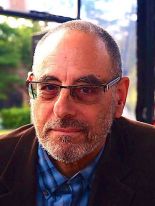
Norman Fischer has been publishing poetry since 1979. He holds an MFA from the Iowa Writers’ Workshop and a Master’s degree from the Graduate Theological Union at the University of California, Berkeley. A Zen Buddhist priest for nearly 30 years, he served as abbot of the San Francisco Zen Center from 1995 to 2000. He is the founder and teacher of the Everyday Zen Foundation and is widely regarded as one of the most respected Zen teachers in the U.S., regularly leading retreats and events.
Fischer is loosely associated with the L=A=N=G=U=A=G=E poetry movement of the 1970s and 1980s and has longstanding creative and personal relationships with many of its writers. He spent five years in monastic training at Tassajara Zen Monastery, where he practiced alongside poets such as Jane Hirshfield and Philip Whalen. teaches mindfulness and contemplative practices in a wide range of settings, including business, law, healthcare, interfaith dialogue, and military chaplaincy. He was one of the creators of Search Inside Yourself, Google’s mindfulness-based emotional intelligence course.
Fischer has published twenty books of poetry and nine books on Zen. His work has appeared in numerous literary magazines, including Jacket, Talisman, Bombay Gin, and Tin Fish, and has been anthologized in The Wisdom Anthology of North American Buddhist Poetry and Radical Poetics and Secular Jewish Culture. He was a primary contributor to Benedict’s Dharma: Buddhists Reflect on the Rule of Saint Benedict. He also contributes essays to Tricycle, Buddhadharma, and Shambhala Sun, and is a frequent contributor to Best Buddhist Writing.
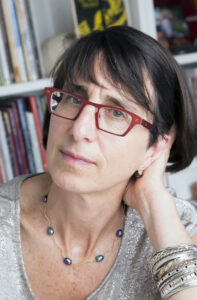
Jessica Greenbaum is a poet, teacher, and social worker living in Brooklyn. Her first poetry collection won the Gerald Cable Prize; her second was selected by Paul Muldoon for the Princeton Series of Contemporary Poets and named a best book of the year by Library Journal. Her third collection was praised by Grace Schulman for its “brilliant use of metaphor” and “keen observation,” and named a best book of the year by The Boston Globe. She co-edited the first-ever poetry Haggadah with Rabbi Hara Person and is co-editing a forthcoming anthology of 21st-century poems about trees with poets Jennifer Barber and Fred Marchant.
Greenbaum has received awards from the National Endowment for the Arts and the Poetry Society of America. She teaches poetry in academic and community settings, often around Jewish text or with groups affected by trauma. She has led workshops through Footsteps (for individuals leaving ultra-Orthodoxy), NYU Langone (for 9/11 first responders), and the Children’s Brain Tumor Foundation. She has taught at Barnard College, Vassar College, and Brooklyn Poets, where she serves on the board. Since 2015, she has designed and led original classes at Central Synagogue in Manhattan. Her teaching focuses on poetry that is accessible to read, rich for discussion, and useful as a tool for reflection and connection.

Rachel Hadas is a poet, essayist, and translator whose recent poetry collections include Ghost Guest (2023) and Pandemic Almanac (2022), both from Ragged Sky Press. Her essays and criticism appear in Piece by Piece (Paul Dry Books, 2021). Forthcoming books include Forty-four Pastorals (Measure Press) and a prosimetrum titled From Which We Start Awake (Able Muse Press, 2025). Hadas is one of around forty translators of Nonnus’s Dionysiaca, published as Tales of Dionysus (University of Michigan Press, 2022), and has translated three plays by Euripides. She serves as Original English Verse Editor for Classical Outlook and is especially engaged in medical humanities, poetry, and classical translation.
She taught English at Rutgers University–Newark from 1981 to 2023, becoming a Board of Governors Professor in 2001. She has also taught at Columbia and Princeton, as well as at the Sewanee and West Chester poetry conferences and the Hudson Valley Writers’ Center. Her honors include a Guggenheim Fellowship, an Ingram Merrill Foundation grant, the O.B. Hardison Poetry Prize from the Folger Shakespeare Library, and an award in literature from the American Academy of Arts and Letters. She has held residencies at Yaddo, MacDowell, and the Virginia Center for the Creative Arts, and is a member of the American Academy of Arts and Sciences.
Hadas lives in New York City and Danville, Vermont, and collaborates on poetry and video with her husband, artist and filmmaker Shalom Gorewitz.
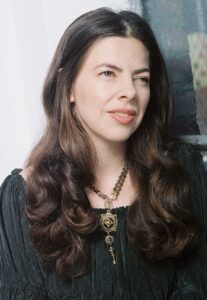
Rabbi Jill Hammer, PhD, is an author, teacher, midrashist, mystic, poet, and priestess dedicated to an earth-based, mythic view of the world: where nature, ritual, and story connect us to the cosmos and to ourselves. She is the author of nine books, including Sisters at Sinai, The Jewish Book of Days, The Hebrew Priestess (with Taya Shere), Return to the Place, and Undertorah: An Earth-Based Kabbalah of Dreams. Her latest works include The Moonstone Covenant (2024) and a new edition of The Omer Calendar of Biblical Women.
Rabbi Hammer is Director of Spiritual Education at the Academy for Jewish Religion, a pluralistic rabbinical and cantorial seminary in Yonkers, NY, where she teaches midrash, mysticism, ritual, and contemporary spirituality. She also serves as Director of Learning and Ritual at Beit Kohenet, a center for Jewish mystical feminist earth-based practice, where she leads transformative study and prayer experiences. Rabbi Hammer leads guided meditation and ritual for retreats, synagogues, and rabbinical schools, and facilitates life-cycle and seasonal ceremonies that blend sacred tradition with creative, poetic exploration.
She earned her B.A. from Brandeis University, a Ph.D. in social psychology from the University of Connecticut, and rabbinic ordination from the Jewish Theological Seminary in 2001. Rabbi Hammer lives in Manhattan with her wife, Shoshana Jedwab, and their daughter. They are members of Romemu, a Jewish Renewal community, where she often teaches and offers spiritual guidance.

Edward Hirsch, a Chicago native and MacArthur Fellow, is a celebrated poet and passionate advocate for poetry. He has published eleven books of poetry, including The Living Fire: New and Selected Poems, Gabriel: A Poem, a book-length elegy for his son, and Stranger by Night. His newest work, My Childhood in Pieces, is a genre-defying memoir combining stand-up comedy with elegy and memory.
Hirsch is also the author of eight books of prose, including the national bestseller How to Read a Poem and Fall in Love with Poetry, as well as 100 Poems to Break Your Heart and The Heart of American Poetry. His writing is widely praised for its emotional clarity, literary insight, and deep reverence for the transformative power of art. He has received numerous honors, including the National Book Critics Circle Award, the Pablo Neruda Presidential Medal of Honor, the Prix de Rome, the National Jewish Book Award, and fellowships from the Guggenheim Foundation and the American Academy of Arts and Letters.
Since 2003, Hirsch has served as president of the John Simon Guggenheim Memorial Foundation. He lives in New York City.

Rodger Kamenetz is an award-winning poet, author, and teacher. Of his 13 books, his best known is The Jew in the Lotus, which tells the story of rabbis making a holy pilgrimage through India to meet the Dalai Lama. His account of their historic dialogue became an international bestseller and prompted a reevaluation of Judaism in light of Buddhist thought. Now in its 37th printing, The Jew in the Lotus is a staple of college religion courses. The New York Times called it a “revered text.” A PBS documentary followed, and a sequel, Stalking Elijah, was awarded the National Jewish Book Award for Jewish Thought. Kamenetz’s many books of poetry include The Lowercase Jew, Yonder, and Dream Logic. He has been called “the most formidable of the Jewish-American poets.” His memoir, Terra Infirma, was described as “one of the most beautiful books ever written about a mother and a son.”
Born in Baltimore, Rodger Kamenetz holds degrees from Yale, Johns Hopkins, and Stanford. At Louisiana State University, he held dual appointments as Professor of English and Professor of Religious Studies, and founded both the MFA program in creative writing and the Jewish Studies minor. He retired as LSU Distinguished Professor and Sternberg Honors Chair Professor. He lives in New Orleans, where he now devotes himself to working with clients who seek spiritual direction through dreams.

Ilya Kaminsky was born in Odessa, former USSR and came to USA in 1993 when his family was granted asylum by the American government. He is the author of Dancing in Odessa (Tupelo) and Deaf Republic (Graywolf) as well as co-editor of Ecco Anthology of International Poetry (Harper Collins), Homage to Paul Celan (Marick) and many other books. He has also translated books by Marina Tsvetaeva, Polina Barskova, Boris and Ludmila Khersonsky, among others. His work has received The Los Angeles Times Book Prize, The Guggenheim Fellowship, and was shortlisted for the National Book Award and National Book Critics Circle Award.
Kaminsky frequently collaborates with artists from other disciplines, including musicians, choreographers, and visual artists. One of his recent projects, Odesa, a collaboration with photographer Yelena Yemchuk, was named one of Time magazine’s Best Photo Books of 2022. In 2019, the BBC named him one of “12 artists who changed the world.” He currently teaches at Princeton University and lives in New Jersey.
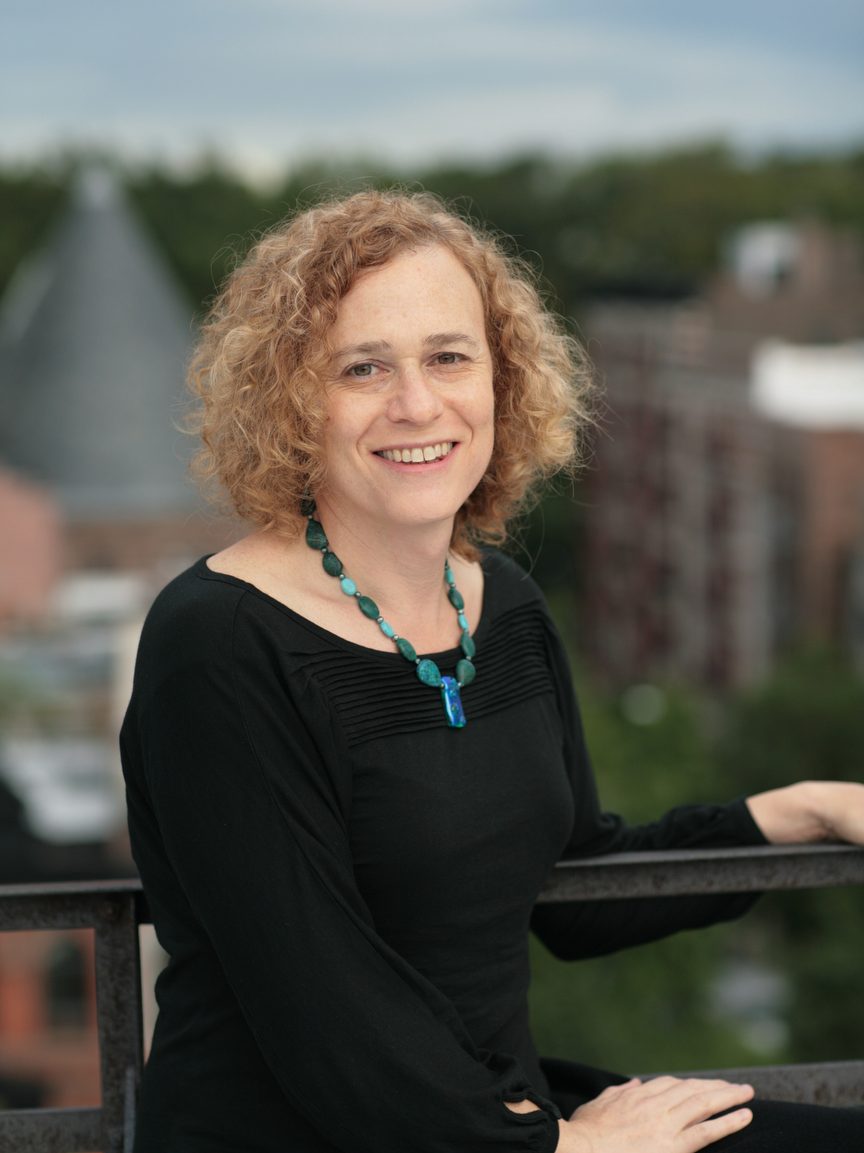
Joy Ladin is an acclaimed poet, essayist, literary scholar, and nationally recognized speaker on transgender issues. From 2003 to 2021, she held the David and Ruth Gottesman Chair in English at Yeshiva University’s Stern College for Women, becoming the first openly transgender employee of an Orthodox Jewish institution after her gender transition in 2008. She is the author of twelve books, including The Book of Anna, winner of the National Jewish Book Award; Through the Door of Life, a memoir of gender transition; and The Soul of the Stranger: Reading God and Torah from a Transgender Perspective, a Lambda and Triangle Award finalist. Her ten poetry collections include Shekhinah Speaks, Transmigration, Impersonation, and Coming to Life. Her work has received fellowships from the National Endowment for the Arts, the Fulbright Program, the Massachusetts Cultural Council, and the Hadassah Brandeis Institute, among others.
She holds a Ph.D. in American Literature from Princeton University, an M.F.A. from UMass Amherst, and a B.A. from Sarah Lawrence College. Joy currently serves on the board of Keshet, a national organization advocating for LGBTQ inclusion in Jewish life.

Dana Levin’s fifth book is Now Do You Know Where You Are (Copper Canyon, 2022), a New York Times Editor’s Choice and a Lannan Literary Selection. Recent books include Banana Palace (2016) and Sky Burial (2011), which The New Yorker called “utterly her own and utterly riveting.” Her first book, In the Surgical Theatre (1999), received the APR/Honickman First Book Prize, chosen by Nobel Laureate Louise Glück. Levin is a grateful recipient of many honors, including those from the National Endowment for the Arts, PEN, and the Library of Congress, as well as from the Rona Jaffe, Whiting, and Guggenheim Foundations.
Levin teaches in the MFA Program for Writers at Warren Wilson College, and serves as Distinguished Writer in Residence at Maryville University in St. Louis.

Ricardo Alberto Maldonado was born and raised in Puerto Rico. He is the author of The Life Assignment (Four Way Books, 2020), a finalist for the Poetry Society of America’s Norma Farber First Book Award, a Remezcla Best Book by a Latine Author, and Silver Medalist for the Juan Felipe Herrera Best Poetry Book Award. He is also the translator of Dinapiera Di Donato’s Colaterales/Collateral (Akashic Books, 2013) and coeditor of Puerto Rico en mi corazón (Anomalous Press, 2019), a bilingual anthology supporting grassroots recovery efforts after Hurricane Maria. Maldonado is co-director of 92NY’s Unterberg Poetry Center and serves as board chair of the Poetry Project. He also sits on the boards of the New York Foundation for the Arts and the Brooklyn Book Festival’s Poetry Committee. He is a recipient of fellowships from the New York Foundation for the Arts, CantoMundo, Queer|Art|Mentorship, and the T. S. Eliot and Hawthornden foundations, recognizing his work as a poet, translator, and advocate for the arts.
Maldonado is part of El proyecto de la literatura puertorriqueña / The Puerto Rican Literature Project, a Mellon Foundation–supported online archive documenting Puerto Rican poets across the diaspora and archipelago, in collaboration with the University of Houston’s Recovering the U.S. Hispanic Literary Heritage Program. A recent creative collaboration, You Are the Prelude, a choral and orchestral work with composer Angélica Negrón, premiered at the reopening gala of the New York Philharmonic’s David Geffen Hall.

Rabbi Miriam Margles is an educator, artist and activist. She facilitates workshops integrating Jewish text learning, community building, spiritual practice and creative exploration, particularly addressing issues of conflict, systemic oppression and transformation, spiritual mindfulness, and individual and communal healing. She has been serving as the rabbi of the Danforth Jewish Circle in Toronto since 2010 and teaches in a range of contexts in the US and Canada. Her original compositions of Jewish music for prayer are sung by communities throughout North American, Israel and Europe. She is a graduate of the Reconstructionist Rabbinical College and alumna of the Wexner Graduate Fellowship and the Jerusalem Fellows at the Mandel Leadership Institute. Miriam earned a Master’s degree in Theological Studies from Harvard Divinity School and a Bachelor’s of Fine Arts in creative writing from York University in Toronto.
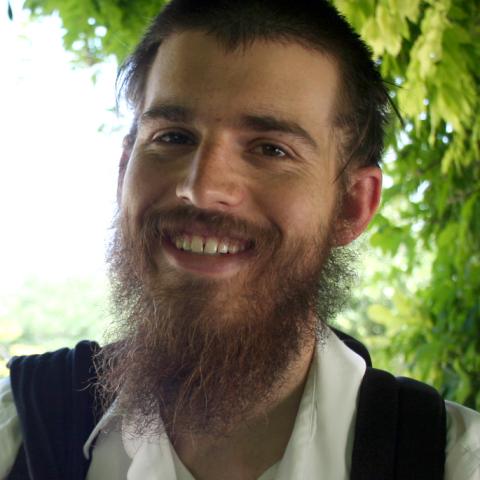
Ariel Evan Mayse is an assistant professor in the Department of Religious Studies at Stanford University, where he has taught since 2017. He also serves as rabbi-in-residence at Atiq: Jewish Maker Institute, a lead fellow at the Institute for Jewish Spirituality and Society, and a senior fellow at the Helen Diller Institute for Jewish Law and Israel Studies at UC Berkeley. Previously, he was Director of Jewish Studies and Visiting Assistant Professor of Modern Jewish Thought at Hebrew College and a research fellow at the Frankel Institute at the University of Michigan.
Mayse holds a Ph.D. in Jewish Studies from Harvard University and rabbinic ordination from Beit Midrash Har’el in Israel. His research focuses on the role of language in Hasidism, manuscript theory and early Hasidic literature, the renaissance of Jewish mysticism in the nineteenth and twentieth centuries, and the relationship between spirituality and law in Jewish legal writings. He also works on Jewish environmental ethics. His books include Speaking Infinities: God and Language in the Teachings of Rabbi Dov Ber of Mezritsh (2020), Laws of the Spirit (2024), and Hasidism: Writings on Devotion, Community, and Life in the Modern World (2020). Forthcoming projects include As a Deep River Rises: Judaism, Ecology and Environmental Ethics and a biography of the Baal Shem Tov for the Jewish Lives Series.

Rabbi Dr. Jay Michaelson is the author of ten books, including two of poetry, Another Word for Sky and Is: Heretical Jewish Blessings and Poems, and a recent collection of short stories, The Secret that is not a Secret: Ten Heretical Tales. Jay’s nonfiction works include Everything is God: The Radical Path of Nondual Judaism and Enlightenment by Trial and Error. His poetry has appeared in anthologies including Collective Brightness: LGBTIQ Poets on Faith, Religion, and Spirituality, Best Gay Poetry, and Signs of the Apocalypse/Rapture.
For twenty years, Jay’s work has focused on the intersections of politics and religion. He has taught meditation for fifteen years, he worked as a religious LGBTQ activist for ten years, and he is currently a visiting researcher at Harvard Law School and a field scholar at the Emory Center for Psychedelics and Spirituality. Jay is also a columnist for the Forward and writes a weekly newsletter on politics and spirituality, Both/And with Jay Michaelson. He holds a JA from Yale, an MFA from Sarah Lawrence College, a PhD in Jewish Thought from the Hebrew University of Jerusalem, and nondenominational rabbinic ordination.
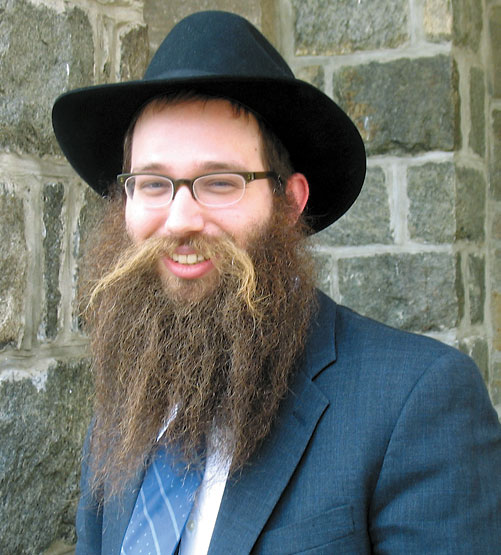
Yehoshua November is the author of God’s Optimism (a finalist for the L.A. Times Book Prize), Two Worlds Exist (a finalist for the National Jewish Book Award and Paterson Poetry Prize), and The Concealment of Endless Light. His work has been featured in The New York Times Magazine, Harvard Divinity Bulletin, The Sun, Tikkun, Virginia Quarterly Review, and on National Public Radio and On Being’s Poetry Unbound podcast program. He teaches writing at Rutgers and Touro University.
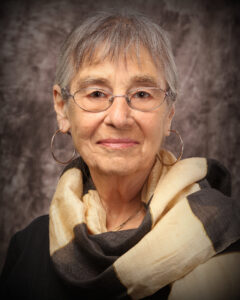
Alicia Ostriker, poet and critic, has published nineteen volumes of poetry, including The Volcano and After (2020); Waiting for the Light (2017), which received the National Jewish Book Award; The Book of Seventy, which received that award in 2009; The Old Woman, the Tulip, and the Dog (2014); The Book of Life: Selected Jewish Poems 1979–2011; and No Heaven (2005). Her 1980 feminist classic and anti-war poem sequence, The Mother/Child Papers, was recently reprinted by the University of Pittsburgh Press. The Volcano Sequence, a volume of spiritual quest and questioning, wrestles with Jewish traditions.
Twice a National Book Award Finalist—for The Little Space (1998) and The Crack in Everything (1996)—and winner of the William Carlos Williams Award for The Imaginary Lover, Ostriker is known for her intelligence and passionate appraisal of women’s place in literature, and for investigating themes of family, sexuality, politics, religion, Jewish identity, and celebration of city life. Joan Larkin writes, “In a voice absolutely her own—wild, earthy, irreverent, full of humor and surprise—Ostriker takes on nothing less than what it feels like to be alive.”
Her critical work includes the now-classic Stealing the Language: The Emergence of Women’s Poetry in America, and books on American poetry and the Bible, including The Nakedness of the Fathers: Biblical Visions and Revisions and For the Love of God: The Bible as an Open Book. Elaine Pagels writes, “No one who reads this amazing, brilliantly written book will ever read the Bible the same way again.”
Ostriker’s poetry has appeared widely, and she has read and taught in the U.S. and abroad. She is Professor Emerita of English at Rutgers University and lives in New York City.

Victoria Redel is a first-generation American author of four books of poetry and five books of fiction, most recently Paradise (2022) and the novel Before Everything. Victoria’s work has been widely anthologized, awarded, and translated in twelve languages. Her debut novel, Loverboy (2001) was adapted for feature film directed by Kevin Bacon. Redel’s short stories, poetry and essays have appeared in Granta, The New York Times, the Los Angeles Times, Bomb, One Story, Salmagundi, O and NOON among many others. Her first collection of poems, Already the World, was the recipient of the Wick Poetry Award and her second collection, Swoon, was a finalist for the Laughlin award. She has received fellowships from the Guggenheim Foundation, The National Endowment for the Arts, and the Fine Arts Work Center. Victoria has taught in the creative writing programs at Columbia University, Vermont College of Fine Arts, The New School, and was the MgGee fellow at Davidson College. She is currently a professor in the graduate and undergraduate Creative Writing programs at Sarah Lawrence College and lives in New York City.

Martha Rhodes is a founding editor and the publisher of Four Way Books. She is the author of five collections of poetry: The Thin Wall (University of Pittsburgh, 2017), The Beds (Autumn House, 2012), Mother Quiet (University of Nebraska Press / Zoo, 2004), Perfect Disappearance (New Issues Press, 2000, winner of the Green Rose Prize), and At the Gate (Provincetown Arts, 1995).
She holds degrees from New School University (BA) and the MFA Program for Writers at Warren Wilson College (MFA). Rhodes has taught at Emerson College, New School University, and the University of California, Irvine. She currently teaches at Sarah Lawrence College and the MFA Program for Writers at Warren Wilson College, and regularly teaches at the Fine Arts Work Center in Provincetown. She has also taught at The Frost Place, Third Coast Writers’ Conference, Bucknell University’s June Seminar for Younger Writers, and has served as a panelist at universities and conferences around the country. From 2010 to 2018, she was director of the Frost Place Conference on Poetry.
She is the publisher and executive editor of Four Way Books in NYC
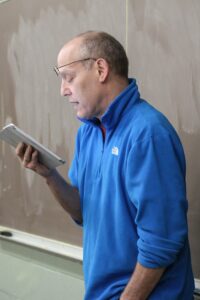
Alan Shapiro is the author of 15 books of poetry (including Reel to Reel, a finalist for the Pulitzer Prize, Night of the Republic, a finalist for both the National Book Award and The Griffin Prize), two memoirs (The Last Happy Occasion, which was a finalist for the National Book Circle Critics Award in autobiography, and Vigil), a novel (Broadway Baby), two books of critical essays (In Praise of the Impure: Poetry and the Ethical Imagination, and That Self-Forgetful Perfectly Useless Concentration) and two translations (The Oresteia by Aeschylus and The Trojan Women by Euripides). Shapiro has won numerous awards, including The Kingsley Tufts Award, LA Times Book Prize, The O.B. Hardison Award from the Folger Shakespeare Library, The William Carlos Williams Award from the Poetry Society of America, an award in literature from The American Academy of Arts and Letters, 2 NEAs, a Guggenheim and a Lila Wallace Reader’s Digest Award. Shapiro has taught at Stanford University, Northwestern University, Warren Wilson College (in its low residency MFA program for writers), and from 1995 to 2021 he was the William R. Kenan, Jr. Distinguished Professor of English and Creative Writing at the University of North Carolina.

Grace Schulman is the recipient of the Frost Medal for Distinguished Lifetime Achievement in Poetry and is a member of the American Academy of Arts and Letters. Her ninth book of poems is Again, the Dawn: New and Selected Poems, 1976-2022. She is the author of a memoir, Strange Paradise:Portrait of a Marriage, and an essay collection, First Loves and Other Adventures. Editor of The Poems of Marianne Moore, she is Distinguished Professor Emerita at Baruch College, C.U.N.Y. She is the translator, from the Hebrew, of The Poems of T. Carmi, and co-translator, from the Spanish, of Songs of Cifar, by Pablo Antonio Cuadra.Among her other honors are the Aiken Taylor Award for poetry, a Guggenheim Fellowship, the Delmore Schwartz Memorial Award, and six Pushcart Prizes. About her poems, Harold Bloom has written, “Grace Schulman has developed into one of the permanent poets of her generation.”
Schulman is former director of the Poetry Center, 92nd Street Y, 1974-84, and former poetry editor of The Nation, 1971-2006.

Jody (Pamela) Stewart is an American poet whose work has been widely recognized for its lyric intensity and deep attention to place, myth, and memory. Born in Boston in 1946, she earned her BA from Goddard College and her MFA from the University of Iowa. Her poetry has appeared in journals such as Seneca Review and Calyx, and in numerous anthologies, including Strong Measures: Contemporary American Poetry in Traditional Forms and Orpheus & Company: Contemporary Poems on Greek Mythology.
She is the author of several poetry collections, including The St. Vlas Elegies (1977), Nightblind Raccoon (1985), Infrequent Mysteries (1991), The Red Window (1997), and The Ghost Farm (2010), as well as chapbooks like Half-Tones and Cascades. Her most recent book, This Momentary World: Selected Poems 1975–2014, was published by Nine Mile Press in 2022. In 1982, Stewart was awarded a Guggenheim Fellowship.
She now resides on a retired farm in western Massachusetts with three senior dogs, some friends, an emu out back, and many stacks of unread books.

Rabbi Burton L. Visotzky serves as Appleman Professor of Midrash and Interreligious Studies Emeritus at JTS, where he joined the faculty upon his ordination in 1977. He also served as dean of the Kekst Graduate School and founding rabbi of the egalitarian Women’s League Seminary Synagogue.
He currently directs the Finkelstein Institute for Religious and Social Studies and the Milstein Center for Interreligious Dialogue at JTS. He serves on the UN’s Multi-Faith Advisory Council and the Steering Committee of “The Plan of Action for Religious Leaders… to Prevent Incitement to Atrocity Crimes.” He is a life member of the Council on Foreign Relations and has engaged in interfaith work globally, including in Jerusalem, Rome, Doha, and Abu Dhabi.
Rabbi Visotzky was awarded the 2012 Goldziher Prize for Jewish-Muslim relations and the 2022 Shevet Achim Award for Jewish-Christian understanding. He serves on the board of IJCIC, representing the Jewish people to international religious bodies. He holds an EdM from Harvard and has taught at Oxford, Cambridge, Princeton, and the Pontifical Universities in Rome. He is the author of 10 books and editor of seven more, with over 125 articles published. His recent work includes Aphrodite and the Rabbis (2016), The Changing Face of the American Jewish Family (2018), and a 3-volume Judaism compendium (2021).
A frequent lecturer worldwide, he has worked with PBS, DreamWorks, and CNN. He lives in New York City and Kent, Connecticut with his wife, attorney Sandra Edelman.

Dr. Avivah Gottlieb Zornberg is the author of 6 books and many articles of interpretation of the Biblical text. She earned her BA and PhD. At Cambridge University She reads biblical and midrashic texts with a psychoanalytic lens, drawing on the works of Sigmund Freud, D.W. Winnicott, Wilfred Bion, Adam Phillips. Her work weaves literary and philosophical sources into her reading, limning out an implicit poetics from within the magisterial ancient texts. She has travelled widely, lecturing at Universities, psychoanalytic institutes, Jewish Community Centres, and synagogues in the U.S. Canada, the UK, Scandinavia, S. Africa, Australia, the Soviet Union and Poland, as well as in her home base in Jerusalem. Her publications include Genesis: The Beginning of Desire (1995), Exodus: The Particulars of Rapture (2001), and Moses: The Story of a Human Life (2016). She won the National Jewish Book Award for her book on Genesis.
